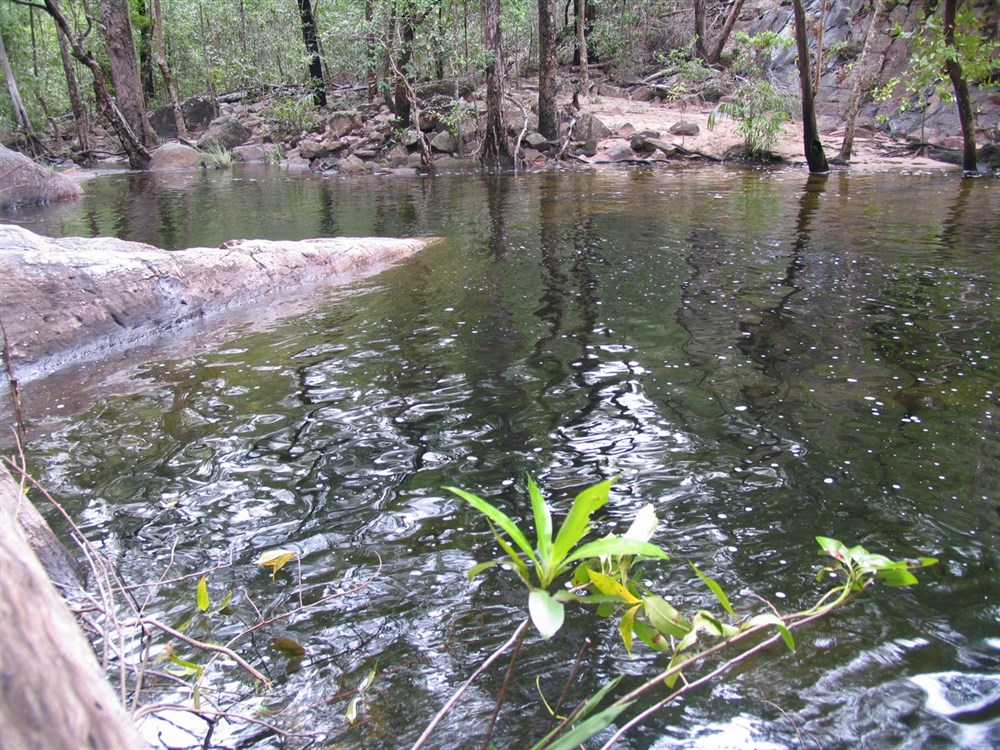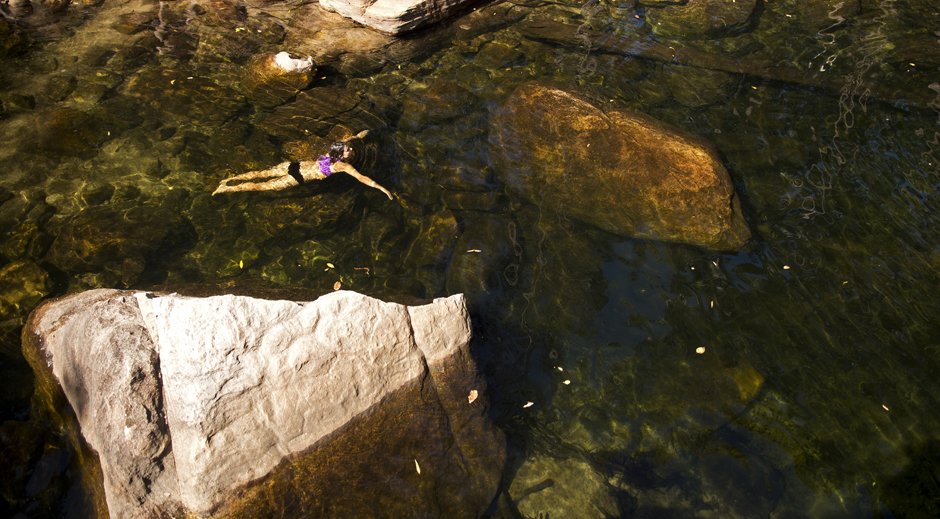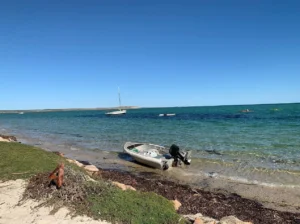If you are looking for a peaceful getaway in nature, Gubara Pools offers an amazing experience amidst the splendor of Kakadu National Park. This hidden treasure is part of one of Australia’s most iconic natural reserves and gives visitors a mix of peace and excitement. The pools are located in lush surroundings and are home to various wildlife species, making them popular destinations for relaxation as well as exploration. The vibrant flora and fauna surrounding the area make it a prime spot for nature enthusiasts and photographers alike. Moreover, the cultural heritage tied to the land enriches the experience, allowing visitors to connect not just with nature but also with Indigenous stories and traditions. All these aspects make Gubara Pools an unforgettable oasis waiting to be discovered.

Understanding Gubara Pools
Gubara Pools is located in the heart of Kakadu National Park, about 3 hours southeast of Darwin, Northern Territory. To get there by car, travelers should drive along Arnhem Highway then turn onto Mary River Road leading to Jabiru. From Jabiru, road signs will direct you straight to Gubara Pools so that finding this pristine oasis is relatively easy for tourists. It is advisable to check on accessibility before your trip because road conditions may vary. Besides, given the stunning scenery along the way, driving itself can be an enjoyable part of your journey. Plan your route thoughtfully especially during wet season when some roads may be less accessible.
Natural Features
As one approaches Gubara Pools they are met with picturesque views of rugged cliffs and greenery all around them. The pools themselves consist of natural rock formations filled with clear water that creates a breathtaking sight inviting people to take a dip into it. Unique flora such as palm trees and different shrubs thrives around the pools, making it a vibrant ecological environment. The area is also home to diverse fauna, with birds like the red-winged parrot and reptiles such as freshwater crocodiles frequently sighted. This remarkable blend of flora and fauna adds both charm and vitality to Gubara Pools, making it a compelling destination for outdoor lovers. The essence of the Australian bush permeates every corner, ensuring a wholly immersive experience.
The Experience of Visiting Gubara Pools

Gubara Pools has plenty of activities for visitors whether they are looking for a laid-back retreat or an adventurous outing. For many people, taking a refreshing swim is the highlight as they get to cool off in the cold waters from the scorching sun. Hiking enthusiasts can explore nearby trails that wind through the intricate landscape, revealing stunning views and hidden nooks. Additionally, the scenic backdrop makes Gubara Pools an ideal location for photography—capturing the interplay of light on water and the vivid colors of the surrounding flora. Here are some of the activities you can indulge in:
- Swimming in natural pools.
- Hiking along trails.
- Wildlife photography.
- Picnicking by the waterside.
Wildlife Spotting
Among other attractions at Gubara Pools, wildlife spotting stands out as one unique experience. The area is full of life allowing visitors to see different species in their natural habitats. Common wildlife includes wallabies, kangaroos and numerous bird species which can be seen flitting through trees or gathering around water’s edge quite often.
For birdwatchers, the best time to see many species is at dawn and dusk when they are most active. Here is a quick look at some of the common wildlife you might come across during your visit:
| Animal | Habitat | Best Time to Spot |
|---|---|---|
| Freshwater Crocodile | Near the water | Mid-morning and late afternoon |
| Wallabies | Bushland | Dawn and dusk |
| Red-Winged Parrot | Trees and shrubs | Early morning |
Cultural Significance
The cultural significance of Gubara Pools goes beyond its natural beauty as it is deeply intertwined with the heritage of Indigenous Australians. The local Aboriginal communities have rich stories about Gubara Pools that often reflect their connection to the land and its resources. It is important for visitors to respect this cultural heritage by following guidelines, understanding stories, and appreciating the importance of this land. Engaging with knowledgeable local guides can enhance your understanding of these narratives and ensure that you experience Gubara Pools in a culturally respectful manner. By honoring Indigenous heritage, visitors can create a meaningful connection with the environment while gaining insight into its historical context.
Conservation Efforts
Gubara Pools is part of Kakadu National Park, and conservation is vital to maintain its purity and the surrounding ecosystems. Several local initiatives focus on educating visitors about the importance of preserving natural habitats for future generations. Engaging in responsible practices such as not littering and staying on marked trails helps to keep the landscape intact. There are ongoing efforts to restore areas impacted by human activity, ensuring that Gubara Pools remains a pristine example of Australia’s natural wonders. Visitors are encouraged to learn more about these initiatives and contribute positively to the environment during their visit.
Practical Information for Visitors
The best time to visit Gubara Pools depends largely on what you want from your trip. The dry season, which runs from May through October, offers cooler temperatures and more stable weather conditions making it ideal for outdoor activities. This period tends to attract the most visitors so expect a busy atmosphere. However, visiting during the wet season (November – April) can provide a quieter experience in a lush green setting. Just be aware of changing weather patterns and possible road conditions at this time of year. Regardless of when you go, planning ahead is essential if you want to make the most out of your trip.
Safety Tips
While Gubara Pools is generally safe for visitors, it is important that certain precautions are taken into account. Always be mindful of potential wildlife encounters especially with freshwater crocodiles. Stick only within clearly marked areas and swim only in designated sections. Water safety guides are posted around Gubara Pools; heed these warnings to ensure your safety. When hiking, make sure you bring ample water, wear suitable footwear, and inform someone about your hiking plans before leaving home . Additionally , familiarizing yourself with potential weather changes can help prepare you for unexpected conditions.
Conclusion
Gubara Pools is a peaceful retreat amidst the rugged beauty of Kakadu National Park. With its breathtaking natural features, deep cultural significance and various activities for adventure enthusiasts and nature lovers alike, it stands out as a must-visit destination.
Gubara Pools is the epitome of a peaceful oasis in the wild, whether you want to relax by its calm waters or explore the local wildlife and culture. This hidden gem is waiting for you to discover it and promises unforgettable memories in one of Australia’s most treasured natural landscapes.
FAQs
1. How do I get to Gubara Pools from Darwin?
To get to Gubara Pools from Darwin, drive about 3 hours towards Kakadu National Park. Take Arnhem Highway and then Mary River Road towards Jabiru. From there, follow signs to Gubara Pools.
2. Are there facilities available at Gubara Pools?
Gubara Pools does not have extensive facilities. Visitors are encouraged to bring their own food, water, and supplies. Restroom facilities may not be available on-site, so plan accordingly.
3. Can I swim in Gubara Pools?
Yes, swimming is allowed in Gubara Pools but it is important to check for local conditions. Be aware of any risks associated with crocodiles and adhere to signage and safety advice.
4. What should I bring for a day trip to Gubara Pools?
For a comfortable visit pack plenty of water, snacks or a picnic lunch, sunscreen lotion, hat, swimwear, sturdy shoes for hiking and a camera to capture the breathtaking scenery.
5. Is it safe to hike around Gubara Pools?
While hiking is generally safe make sure you stay on marked trails; be mindful of wildlife especially snakes and crocodiles; let someone know your plans before heading out. Always prioritize safety and preparedness.


